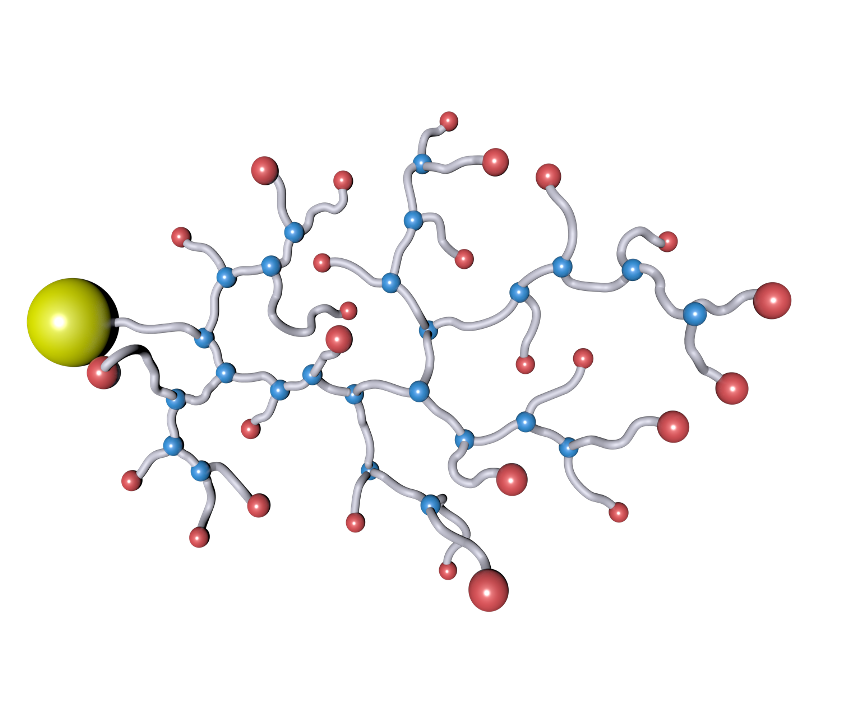Sustainable Polymers: Eco-Friendly Solutions for the Future
Sustainable Polymers: Eco-Friendly Solutions for the Future
Blog Article
Exploring the Varied Applications and Advantages of Polymers in Different Industries
Polymers, with their varied range of properties and functionalities, have ended up being crucial in various industries, each reaping unique gain from their application. Polymers. From boosting security and performance in the automobile industry to transforming medical devices in the healthcare sector, polymers play a crucial duty. Their environment-friendly nature is changing the landscape of sustainability practices. As we look into the midsts of polymers in electronics, we reveal sophisticated advancements, while their structural integrity changes the realm of construction and facilities. The prevalent impact of polymers across sectors is a testimony to their flexibility and flexibility, forming the future of numerous fields.
Automotive Sector Applications
Polymers play a pivotal role in boosting the performance and longevity of various parts within the auto field. These versatile products are thoroughly utilized in the manufacturing of different components, ranging from indoor parts to under-the-hood applications. One popular use polymers in the automotive market remains in the manufacturing of lightweight elements. By changing typical metal get rid of polymer-based options, lorries can achieve enhanced gas efficiency without compromising on stamina or safety and security.

Healthcare Industry Advantages
In various health care applications, the advantages of using polymers are commonly acknowledged for their varied series of beneficial residential properties. Polymers play a vital function in the medical care industry as a result of their adaptability, biocompatibility, and cost-effectiveness. One of the primary benefits of polymers in health care is their capability to be tailored to particular requirements, such as flexibility, resilience, and biodegradability, making them optimal for a variety of medical applications.
Polymer-based products are thoroughly utilized in medical devices, such as catheters, implants, prosthetics, and medicine shipment systems, because of their biocompatibility and ability to resemble all-natural tissues. These materials can lower the danger of allergies or denials, improving client safety and end results. Furthermore, polymers are lightweight, making them ideal for wearable medical devices and making certain individual comfort.
Furthermore, polymers allow the advancement of innovative treatment approaches, such as hydrogels for tissue design and nanocomposites for targeted drug shipment. Their convenience of processing and sterilization makes them essential for preserving high criteria of hygiene in health care setups. Overall, the diverse benefits of polymers add substantially to innovations in medical innovation and person care.
Environmental Benefits of Polymers

Furthermore, polymers can add to energy financial savings as a result of their lightweight nature. In industries such as transport, lightweight polymer products can help in reducing fuel consumption and greenhouse gas discharges. Additionally, polymers can enable the advancement of energy-efficient products such as insulation materials that boost power conservation in buildings.
In addition, polymers play a critical role in reducing water pollution. For instance, making use of polymer-based filtering systems can efficiently eliminate contaminants and contaminants from wastewater, protecting water sources and communities. In general, the ecological advantages of polymers make them beneficial properties in advertising sustainability and environmentally friendly methods throughout various sectors.
Polymers in Electronics and Innovation
Considering the raising demand for ingenious and sustainable solutions in contemporary markets, the assimilation of innovative polymer technologies in the world of electronic devices and innovation has become go to this website a critical method for driving performance and performance. Polymers have actually revolutionized the electronics market by enabling the manufacturing of lighter, more flexible, and durable electronic tools. From mobile phones to medical devices, polymers play a critical function in improving product style and performance.
One considerable benefit of polymers in electronics is try this site their shielding buildings, which help secure delicate digital components from environmental aspects and electric disturbance. Furthermore, polymers are crucial in the growth of flexible display screens, wearable technology, and printed electronics, offering endless possibilities for creating clever and interconnected gadgets.
Additionally, the use of polymers in electronic packaging has actually led to innovations in miniaturization and thermal monitoring, boosting the overall efficiency and dependability of electronic systems. As innovation remains to advance, the flexibility and adaptability of polymers will unquestionably drive additionally advancement in the electronics market, shaping the future of modern technology.
Role of Polymers in Building And Construction and Infrastructure
The integration of sophisticated polymer products in building and infrastructure tasks has actually changed the way frameworks are created and constructed in modern times. Polymers offer various advantages in the building industry because of their adaptability, toughness, and cost-effectiveness. One vital function of polymers in construction is their use in coverings and sealers, giving security versus environmental elements such as moisture, UV radiation, and deterioration. In addition, polymers are used in the manufacturing of light-weight and high-strength composite products, improving the structural honesty of structures while lowering general weight.
Additionally, polymers play an important function in lasting building visit and construction techniques by allowing the growth of energy-efficient structures. Protecting materials made from polymers aid manage indoor temperatures, decreasing the requirement for home heating and cooling down systems and inevitably decreasing energy consumption - Polymers.
Conclusion
Finally, polymers play a critical duty in various industries such as automotive, healthcare, environmental, electronic devices, and building. Their flexible residential or commercial properties make them important in producing innovative services and products. From improving fuel performance in lorries to boosting clinical devices, polymers use countless benefits. Additionally, their influence on lowering waste and advertising sustainability highlights their value in modern-day applications. The extensive use polymers demonstrates their significant payment to progressing innovation and enhancing lifestyle.
Report this page